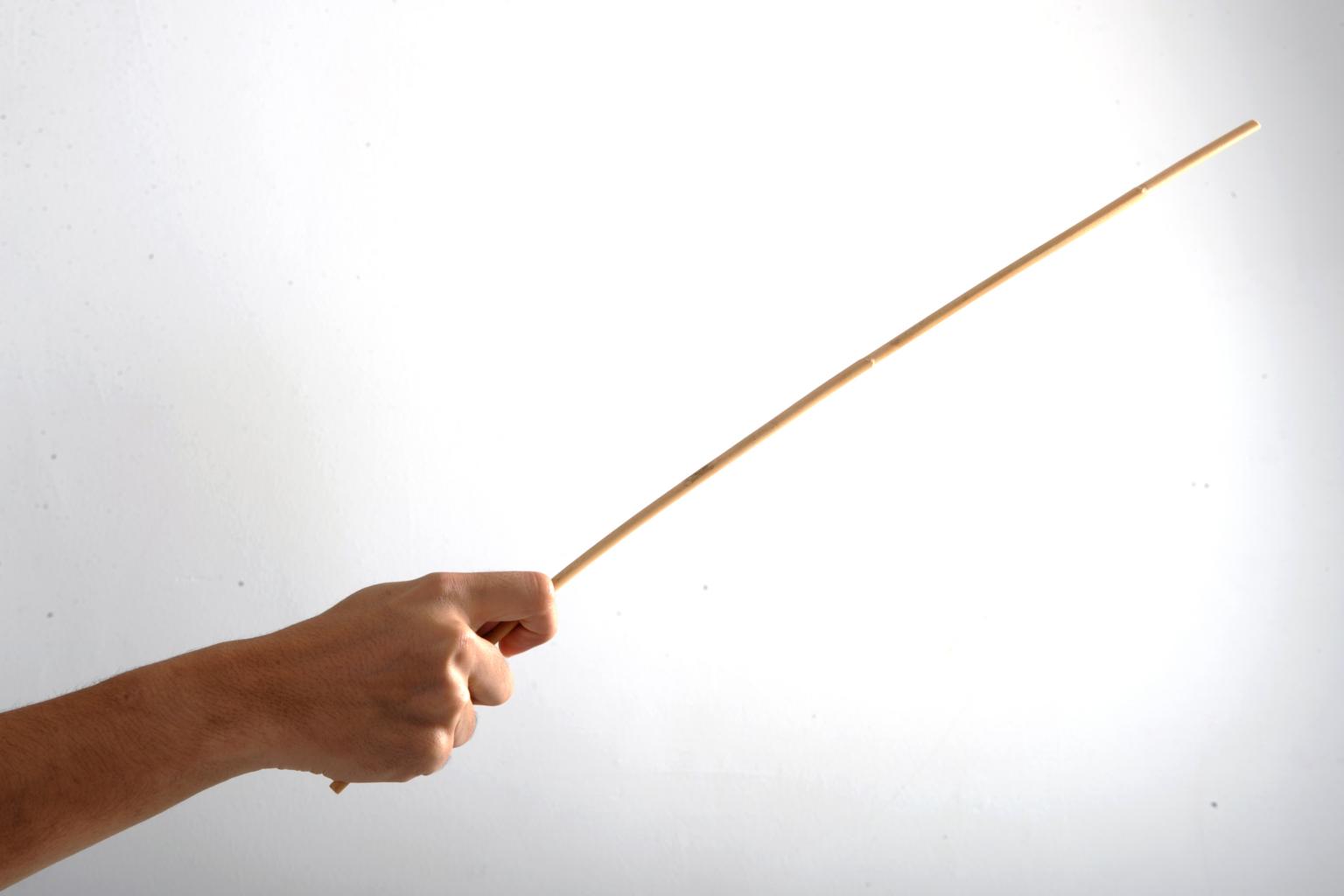More S'poreans turning away from corporal punishment
Sign up now: Get ST's newsletters delivered to your inbox

Posed photo of a hand holding a cane.
PHOTO: ST FILE
As Ms Teo Leng Lee has shared, rigorous scientific studies have found corporal punishment to have several adverse outcomes, with the only positive outcome being immediate compliance (Corporal punishment archaic, does more harm than good, Aug 12).
There have been news reports about the detrimental effects of corporal punishment as well (When caning can turn into outright abuse by Joyce Teo, July 11, 2017; and Moving away from corporal punishment, Feb 16, 2018).
I agree with what the experts cited in the articles suggest: Corporal punishment is a harmful practice that should be replaced with more compassionate strategies to address the root causes of displeasing behaviour.
Some others, such as Cheng Lian Seah (Corporal punishment is last resort, Aug 19), believe that corporal punishment should remain an option based on their own experiences and observations.
However, a slow shift away from corporal punishment has already started in Singapore.
The Singapore Children's Society conducted two public surveys in 1994 and 2010 on whether various methods of physical punishment amounted to child abuse and neglect. The results show that although 29.4 per cent of the public considered caning as "not child abuse and neglect" in 1994, this proportion dropped by 10.4 percentage points to 19 per cent in 2010.
The surveys showed that although many Singaporeans were still hesitant to label caning as child abuse and neglect, many increasingly considered it as a possibility.
In Singapore's combined second and third reports to the United Nation's Convention on the Rights of the Child Committee, it stated: "Legislation, guidelines and public education programmes exist to promote appropriate discipline and discourage the use of corporal punishment as a means of child discipline."
Under the Education Ministry guidelines, the maximum number of strokes per caning that each student in school can receive was reduced from six to three in 2017.
Law Professor Chan Wing Cheong argued in a 2018 paper that sufficient evidence suggests that Singapore law implicitly prohibits corporal punishment of children by their parents.
As such, there are some indications that we are slowly recognising the adverse psychological impacts of corporal punishment and are starting to move away from it.
I hope we continue to be committed to raise all our children in safe environments and most importantly, do no unnecessary harm.
Rianne Thandar Wynn


